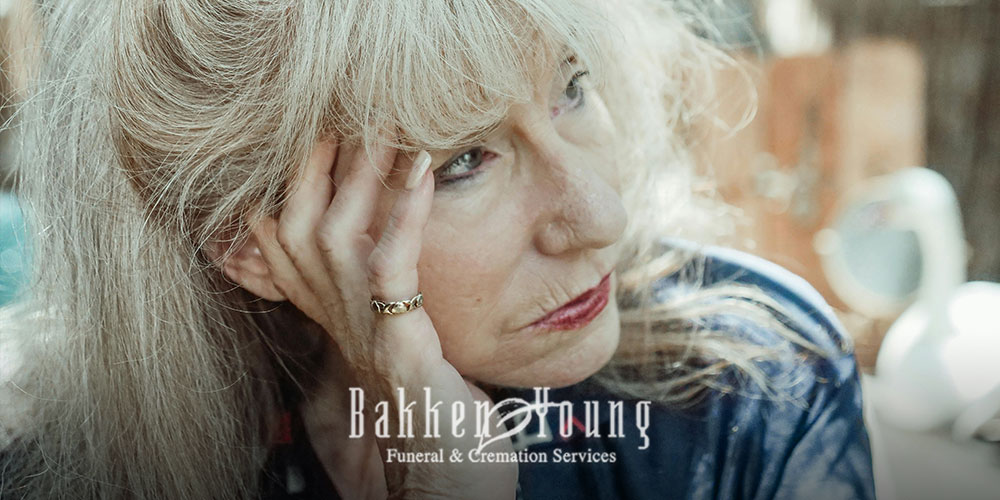by Chaplain Julia Rajtar, MAPS, BCC
Ask the bereaved, “How would you describe the person who died,” and often, descriptions like these are expressed: “kind, caring, husband, wife, thoughtful, handyman, cook, baker…” We tend to paint a “good” picture of who the person was. Sometimes, to trusted individuals, a more in-depth description may be expressed in phrases like: “Well, it’s kind of complicated,” or “its difficult, they were a flawed human being who treated me awful, a jerk,” or “they had a disease that made them use more (drugs, alcohol), and they did not treat me kindly.” As human beings, we are flawed, and sometimes those flaws cannot be healed or mended in life, creating complications in our grieving after their death.
A speaker began a webinar with the question, “What counts as complicated?
All of it, and it is subjective,” she said.
There are relationships where the person who died caused harm. As a result, we feel isolated, unable to share that side of the deceased with others. There are times when the bereaved were in abusive relationships, or substance use was part of the life of the person who died. Betrayal is another of those relationship issues that complicates grieving. If the deceased had mental health challenges, the caregiver may have had to set some boundaries for protection. Additionally, physical health changes can cause relationship challenges, especially if the person who died was sick for a while, changing the dynamics of the family. Emotional and physical distance create estranged relationships, consider issues of gender identity or deportation of some immigrant families. Cultural factors have an impact on relationships as new immigrants and refugees come to this country, working toward citizenship and trying to fit in, all the while maintaining their own culture and identity. Sometimes, an unresolved conflict will cause complications. Consider a parent who asks their child to take out the trash before school, the child argues and storms out of the house. The parent has an auto accident that day and dies. One final complication is when the deceased causes harm to others such as homicide.
For the bereaved, estranged relationships create a sense of isolation, relief, guilt, shame, confusion, anger, and blame, along with other emotions. We don’t share out loud about the kind of person the deceased was because most others saw a different side of them or because we don’t want to deal with the other’s reaction to how they were to us. Relief is a factor for the bereaved, in that they no longer experience the harm from the person who died. On the other hand, they feel guilty for feeling that relief and sometimes regret because the person couldn’t be different in life.
How can grieving, a natural and normal response to loss, be uncomplicated when a relationship was estranged or the individual who died caused harm? There are some resources available to the bereaved, including counseling – that professional who will provide listening and empathy where the bereaved can share their story openly and honestly, without judgment or criticism. There may be some support groups where the individual can honestly share about who the person was who died, and how they were treated by them – even the harm that was caused, in a supportive and non-judgmental fashion. There are some podcasts from the Dougy Center, listed below, that can be helpful.
In the end, the bereaved make a choice of what to share and what they choose not to share. It is complicated when carrying estranged relationships forward in life.
Grief is love, with nowhere to go, true, and grief is hurt, harm, and betrayal too.
Sources
DeCristofaro, Jana, LCSW, (2025, March) It’s Complicated, Death, Grief, and Estranged Relationships, [webinar], Dougy Center Grief Education Webinar, Portland, Oregon.
Resources for Additional Education
Dougy Center (articles and podcasts)
- Supporting Children & Teens When Someone Dies From Substance Use
- Holding Heart in Community: For Queer & Trans Youth and Those Supporting Them
- Grief Out Loud Ep. 24: Grief & Complex Relationships (Part 1) – The Death of an Ex-Husband
- Grief Out Loud Ep. 26: Grief & Complex Relationships (Part 3) – The Death of a Parent
- Grief Out Loud Ep. 65: A Mother’s Story – Sue Klebold
GRASP, or Grief Recovery After Substance Passing, is a community designed to support people who have lost someone they love to addiction and overdose. In this way, GRASP provides an outlet not only for the mental and emotional toll of having and losing a loved one to a substance use disorder. https://grasphelp.org/


Add Comment